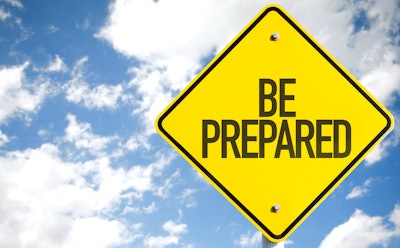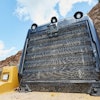
As we speculate on potential challenges that await us in 2023, natural disasters that can occur throughout the country such as tornados in the Midwest, earthquakes on the West Coast, nor’easters on the East Coast and of course hurricanes such as the devastating Hurricane Ian in Florida certainly remain top of mind. With homes, businesses and cities at risk of being dramatically affected by unthinkable circumstances beyond anyone’s control, one question looms large: how do we prepare for natural disasters in the future? Ultimately, when it comes down to it, humans have a role in addressing all disasters, whether man-made or nature-made. These events are inevitable, but we are not defenseless. For some, disaster preparation is a tedious chore. For me, it’s a great passion.
Through a holistic approach to disaster preparation, I have found that the potential benefits extend well beyond the parameters of any individual cargo container. Disaster prep done right? You can avert a crisis. Disaster prep done brilliantly? You can multiply your growth.
When people passionately embrace the process of preparing for the worst, they inevitably discover best practices to enhance their future. The exercise requires an in-depth, 360-degree analysis that can be exhausting, especially when there are moving parts all across the globe, but it’s worth it. Let’s say you’re an emerging furniture brand with a factory in China, headquarters in San Francisco, and a warehouse in Los Angeles, and a growing online presence that includes Amazon, Shopify and a growing direct-to-consumer website. This hypothetical situation comes close to describing many companies and the list of potential threats to the value chain includes cyber hacking, labor strikes, earthquakes, and of course, another resurgence of Covid-19.
A mentor of mine once said, “when disaster strikes, the time to prepare has passed.” Always prepare, not just when something is going wrong. Always plan for “what if,” even if the numerous “what if” scenarios never become reality. The regular process of reviewing the scope of our business and making an actual list of all material, transactional and human resources that impact our timelines and our value chain – and envisioning any of those resources eliminated or impaired through extreme crisis – has enabled us to not only discover creative and more efficient ways to run our own business, but also to provide far more valuable advice to our clients as well.
In any successful audit of potential disaster, two words will most definitely come up – the first being sustainability, pertaining to business stability and survival sense, and liability.
First, you must ask yourself how you can sustain your business and continue to deliver the value that your customers expect. Do disasters change these outcomes? Can you meet your customers' needs and expectations or does that change when there’s a disaster? If you believe that a disaster does in fact have an impact on your business, it’s important for you to know what exact resources you have, versus which ones you won’t have, in advance so that you can have a contingency plan for how you will operate and adapt to meet your customers’ needs. Even if this is a new way of operating or thinking for you and your business, you’re providing a new value and service for your customers by anticipating potential disruptions. A potential disaster will give you the opportunity to service your customers in new ways and even to new customers altogether. Being nimble is the key to strategically planning the lifeline of your business in times of a disaster.
The second word that will come to mind is liability. If something were to go wrong, ask yourself, are you liable? Do you have proper insurance? Make sure your contacts are fully understood. You are responsible for any loopholes that might occur. It may sound obvious but having full awareness of your liabilities is just as important as any other part of the preparation process.
Transparency, digitization and remaining organized before disaster strikes are the keys to successfully steering the ship in rocky waters. Resilience, practicality and everyday preparation will forever reign supreme against the forces we cannot control.
Whether disaster comes courtesy of Mother Nature or the Internet, isolated data storage devices will only heighten your vulnerability. With digitization becoming the norm in global transport, we continue to be surprised when we encounter companies working with local servers that document their shipping imports and exports. This physical data storage system limits the ability to access information from anywhere at any time. Being able to work remotely is a massive advantage in the world today, especially if there is a crisis. Local data storage is not only a problem in the business world, but in our personal lives as well. We can all recall the pre-cloud days when entire contact lists would be gone if a cell phone was lost or broken. But we moved beyond our reliance on physical storage, and now with all numbers saved in the cloud we can always access from someone else’s device. The same works for the supply chain.
Covid-19, nor’easters, tornados, hurricanes, wildfires, typhoons or earthquakes, are far from being the last disasters to grapple with humanity. No matter the scenario, you need to map out the systems to prepare and respond for any and every disaster possible. Every individual, and every machine, knows its role day in and day out regardless of obstacles in the supply chain. Your company should be ready to immediately act against adversity rather than figuring out how to respond when it arrives. When we think beyond the expected, we open ourselves up to the exceptional.

















